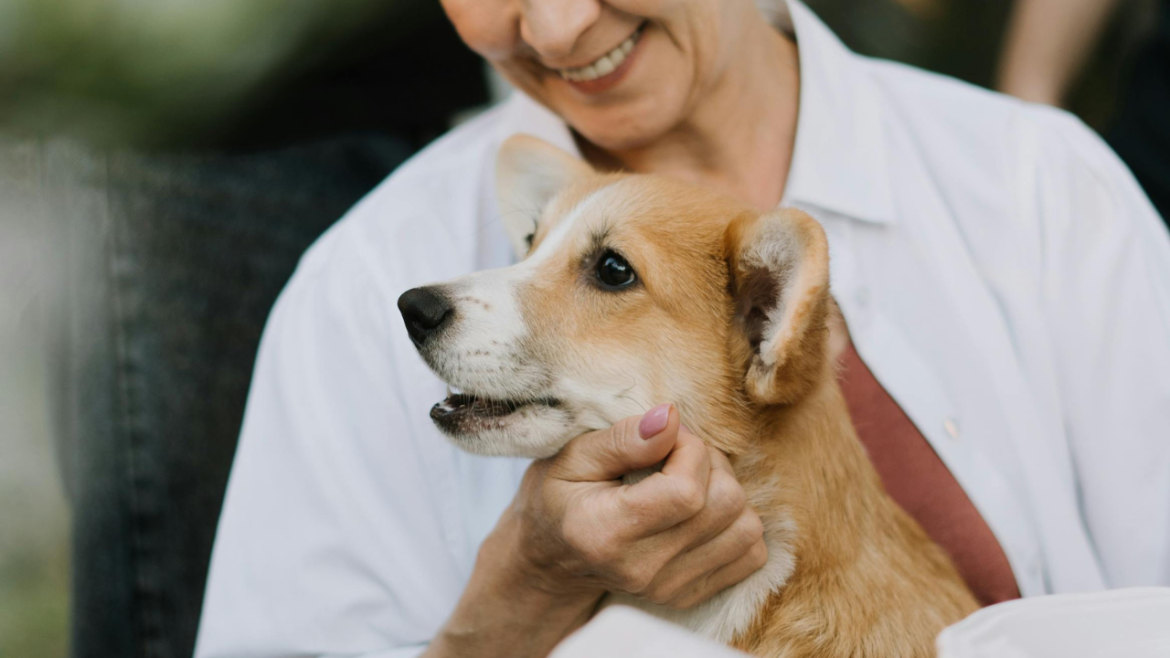Benefits Of Having A Pet For Seniors
As seniors age, feelings of loneliness and isolation can become increasingly common, impacting both mental and physical health. Pets provide a constant source of companionship, offering unconditional love and a sense of purpose.
The simple act of caring for a pet, whether feeding, grooming, or taking them on short walks, helps seniors maintain a daily routine and fosters a sense of responsibility. Beyond routine, pets provide emotional comfort during challenging times, offering solace when family members are unavailable and reducing the emotional weight of isolation.
Physical Health Benefits
Having a pet encourages physical activity, which is crucial for seniors seeking to maintain mobility, strength, and cardiovascular health. Walking a dog daily promotes regular exercise, improving stamina, circulation, and joint flexibility. Even interacting with cats or smaller pets can encourage movement through play and care, keeping seniors active.
These activities not only enhance physical health but also support cognitive engagement, as planning care, remembering feeding schedules, and participating in play require focus and mental coordination. Over time, these small yet consistent physical interactions can significantly improve overall wellness.
Reducing Stress and Anxiety
Pets are known to lower stress levels by providing comfort and reducing feelings of tension. Physical touch, such as petting a dog or cat, stimulates the release of oxytocin, a hormone associated with bonding and relaxation, while reducing cortisol, the stress hormone.
This calming effect can be particularly beneficial for seniors who experience anxiety or have health conditions exacerbated by stress. The rhythmic motion of stroking a pet, coupled with their gentle presence, helps regulate emotions, creating moments of peace and grounding that contribute to emotional resilience.
Social Engagement and Connection
Pets often act as social catalysts, encouraging interactions between seniors and others in their community. Walking a dog or visiting a dog park increases opportunities for casual conversations with neighbors and other pet owners, fostering social bonds and reducing isolation.
Pets can also serve as conversation starters during visits from friends or family, making social engagement easier and less intimidating. These interactions combat the feelings of disconnection that can occur with age, supporting mental health and reinforcing a senior’s sense of belonging within their community.
Cognitive and Mental Stimulation
Engaging with a pet stimulates cognitive functions in seniors, helping maintain mental sharpness and focus. Training, playing, and observing a pet’s behavior require attention, problem-solving, and memory recall, all of which contribute to cognitive health.
Additionally, caring for a pet provides a structured routine, which is particularly beneficial for seniors with mild cognitive impairments or early-stage dementia. Regular interaction helps maintain mental clarity and can reduce the progression of cognitive decline by promoting active engagement and consistent mental stimulation.
Emotional Resilience and Purpose
Pets give seniors a sense of purpose that extends beyond daily care. The responsibility of nurturing another living being fosters confidence, self-worth, and a feeling of accomplishment. Knowing that a pet depends on them encourages seniors to maintain routines, care for their health, and stay engaged with daily life.
This sense of purpose can significantly improve mood and emotional resilience, helping seniors cope with life’s challenges and fostering a positive outlook. In many cases, the bond with a pet becomes a source of motivation and joy, enriching daily experiences.
Creating Joy and Meaningful Experiences
The presence of a pet brings joy, laughter, and companionship into a senior’s life, creating opportunities for meaningful experiences. Whether it’s watching a cat play, teaching a dog new tricks, or simply sharing quiet moments together, pets provide consistent sources of happiness and emotional fulfillment.
These moments encourage seniors to engage with their environment, enjoy the present, and form meaningful emotional connections. The companionship of a pet nurtures the human need for connection, helping seniors live fuller, more engaged lives filled with love and comfort.
Conclusion
Owning a pet provides a wide range of benefits for seniors, from emotional support to physical activity, cognitive engagement, and social interaction. Pets offer unconditional love, reduce stress, encourage exercise, and create meaningful opportunities for connection and purpose. For seniors, having a pet can transform daily routines into fulfilling, enjoyable experiences, enhancing quality of life and promoting overall well-being.
The bond between seniors and their pets represents more than companionship—it is a source of joy, stability, and emotional resilience that contributes to long-term happiness and health. Caregivers and families should consider the positive impact of pet ownership when supporting seniors, recognizing that a loving animal companion can significantly enrich life in ways that extend far beyond basic care.

